Dr Akjemal Magtymova, Head of Mission and WHO Representative in Syrian Arab Republic
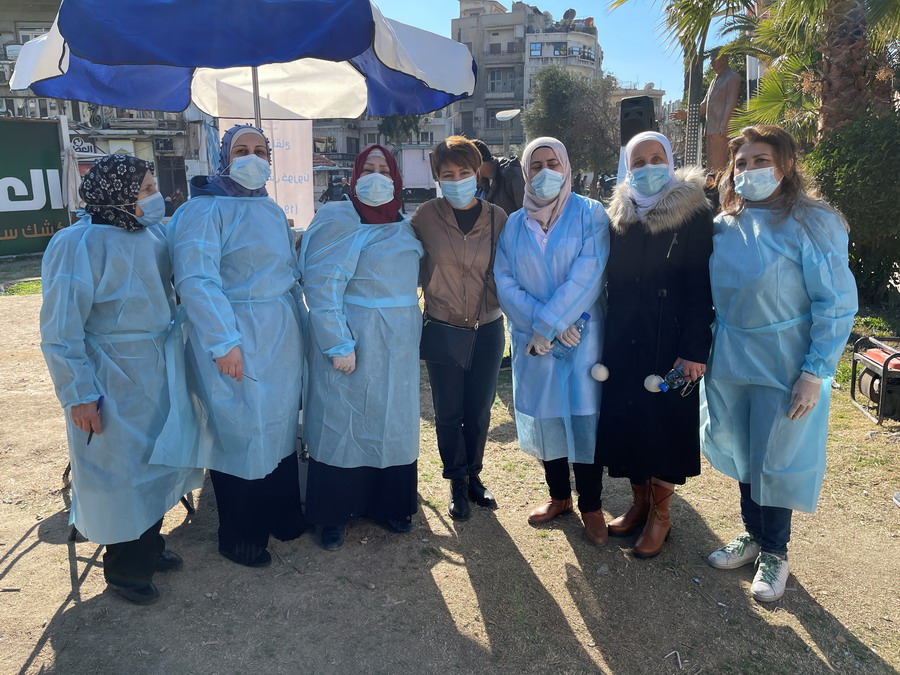
On Mother’s Day, I would like to shine a spotlight on the extraordinary resilience and leadership of Syrian women – daughters, sisters, mothers, grandmothers. For the last 11 years since the start of the crisis in Syria, women have faced many challenges, yet firmly continue to contribute to health, well-being and the advancement of their own families, communities and the country at large.
Women constitute over half of the Syrian population. Over six million women are in need of health support. The majority of internally displaced people (IDPs) in camps and formal and informal settlements are women and children. Almost every third family is headed by a woman, assuming the role of a caretaker and breadwinner, thus significantly contributing to the economy, society and family. Women in Syria have contributed to humanitarian efforts, and in the last two years, have taken a leading role in responding to the COVID-19 pandemic.
There has been increasing recognition of the critical role of health care leadership by women, though more effective and sustained investment in the development of future female health care leaders is critical. Throughout my two-year presence in Syria, I have seen many women leaders who are ardent about providing live-saving health services, promoting healthy lifestyles, and driving change and innovation in health. Be it as leaders in the COVID-19 vaccination roll-out; leaders in strategic health sector planning; leaders in national, regional and global health research; leaders in preventing tobacco use and promoting healthy living; leaders in health education and family affairs; leaders in polio immunization; or nurses, community leaders and influencers – all these women have gone the extra mile to ensure health for all.
The World Health Organization (WHO) in Syria has mainstreamed gender equality in its programming and together with national and international health partners makes every effort to ensure that every woman enjoys her right to the highest attainable standard of health, which includes the right to dignified, respectful health care throughout pregnancy and childbirth, the right to be free from violence and discrimination, and the right to health information to enable women and girls to make informed decisions about their health and to benefit from the services they need.
Through our rights-based and evidence-based humanitarian programming, through resilience and recovery efforts, and through supporting national strategies such as the National Strategy for Women, Children and Adolescents Health in the Syrian Arab Republic (2020-2025), we continue our commitment to the advancement of the health of women.
Some of the flagship areas where WHO makes tangible stride for women’s health are reproductive and maternal health, mental health, the prevention of gender-based violence, and the prevention of and response to sexual exploitation and abuse.
In response to the reproductive health needs of women within Syria’s humanitarian settings, WHO and UNFPA established and co-lead the sub-working group to enable efficient coordination among implementing agencies and relevant stakeholders in the country. The fertility rate in Syria was registered as 2.7% per woman in 2021, which is a reduction since 2010 (3.4%). Significant reproductive health needs remain in a county with limited health capacity for the provision of adequate services and a severely depleted health care workforce. WHO supports hospitals in Syria, including in north-east Syria, in providing normal and C-section birth deliveries, as well as in the capacity-building of medical and nursing professionals responsible for family planning, safe maternal and newborn care.
The prevention of and response to gender-based violence across the health sector in Syria has been institutionalized by WHO since 2018. We provide critical, time-sensitive interventions that prevent, mitigate and treat some of the health consequences of gender-based violence and connect survivors to services that improve their well-being. Mental health and psychosocial support services are a critical entry point for helping gender-based violence survivors and, as such, WHO has gradually introduced these services into health and community facilities in recent years rather than presenting them as isolated projects. Together with partners we raise awareness about violence against women, promote gender equality and women’s human rights and combat stigma and discrimination.
WHO also champions women’s rights within its workplace. Our Organization is equally represented by women and men, shouldering equal burdens and getting paid equally for work of equal value. We actively contribute to the UN Interagency Gender Working Group and to the country, regional and global network for the Prevention and Response to Sexual Exploitation, Abuse and Harassment (PRSEAH). WHO is taking the issue of PRSEAH very seriously, and bringing new insights to this agenda.
As we continue supporting gender mainstreaming in the health sector through research, policy formulation and capacity-building, we draw our inspiration and strength from the women of Syria, who together with other members of society, drive gender transformative changes in achieving universal health coverage and health for all. I wish Happy Mothers’ Day to all mothers in Syria and across the world and thank you for your determination and commitment to build a better world.
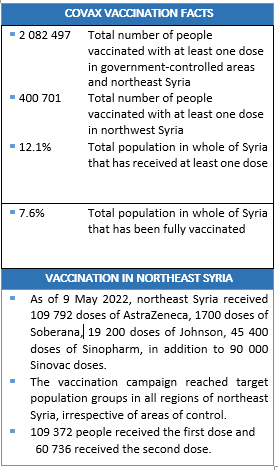 Summary
Summary




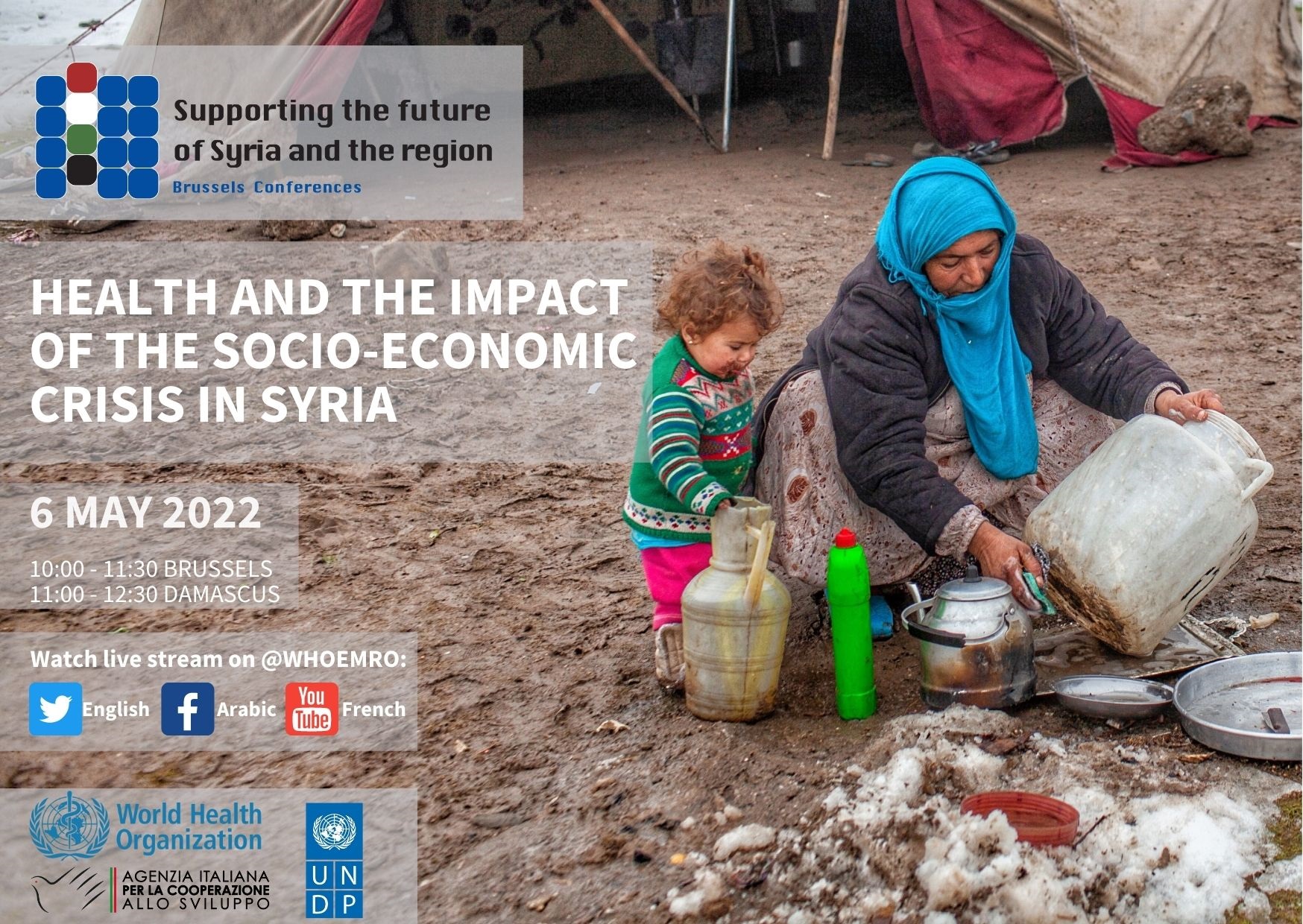
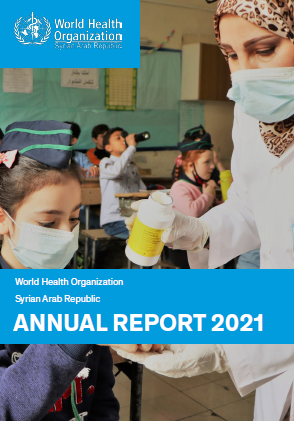 Syria annual report 2021
Syria annual report 2021
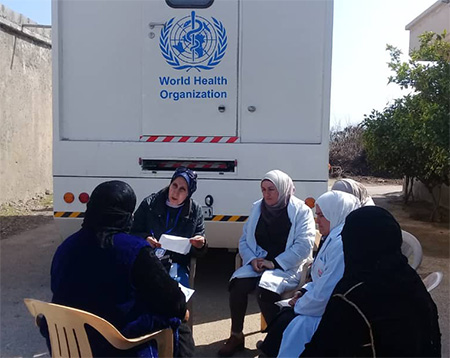 27 March 2022 - 25-year-old Muhdia from Karm Myasser district in Aleppo, Syria, was diagnosed with tuberculosis (TB) after being examined by the TB mobile clinic. Muhdia was losing weight, coughed frequently, had fever and difficulties in breathing. Thanks to the agility of physicians, she was immediately referred to the TB centre in Aleppo where doctors started the treatment and explained the importance of taking medication for the next two years for the full recovery.
27 March 2022 - 25-year-old Muhdia from Karm Myasser district in Aleppo, Syria, was diagnosed with tuberculosis (TB) after being examined by the TB mobile clinic. Muhdia was losing weight, coughed frequently, had fever and difficulties in breathing. Thanks to the agility of physicians, she was immediately referred to the TB centre in Aleppo where doctors started the treatment and explained the importance of taking medication for the next two years for the full recovery.